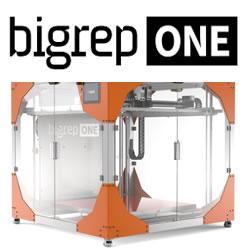Rapid Fusion targets £3m sales with new CNC milling tool that offers the best of both manufacturing worlds
Rapid Fusion, which employs eight people at its recently opened Exeter R&D centre, has created a high-performance electro spindle that will provide precision milling and post-processing of polymer 3D prints.
One of the UK's leading 3D printing specialists is targeting a £3m opportunity after launching a new CNC milling tool that will offer manufacturers the best of both worlds.
Rapid Fusion, which employs eight people at its recently opened Exeter R&D centre, has created a high-performance electro spindle that will provide precision milling and post-processing of polymer 3D prints.
Eight months in gestation, the breakthrough technology will be fitted to future ZEUS 3D robotic systems by the company and will give clients the opportunity to enjoy the speed of additive manufacturing with the precision of subtractive machining - all in one 6-metre x 6-metre cell.
This tool will be ideal for high-quality moulds across a range of industries, such as automotive, aerospace and marine applications, where speed to market is increasingly important.
"This CNC milling tool has the potential to be a real game changer for manufacturers and has been designed in partnership with a number of end users to ensure we deliver exactly what they need," explained Martin Jewell, R&D Director at Rapid Fusion.
"3D printing can give unrivalled speed and creates moulds near net shape, within 3 to 4mm. Certain applications need even greater precision and this is where you can call in a CNC milling tool to remove the excess material. Going forward, we'll be able to offer this in one turnkey solution."
He went on to add: "The advantages are huge. We now know we can deliver repeatable quality, and, on one trial project, we reduced the lead time for a mould tool from six to eight weeks to just five days. That is some saving.
"Our CNC milling tool comes equipped with a tool changer, allowing users to swap between it and the 3D printing pellet extruder on a robot set-up. It can also efficiently handle engineering-grade materials, such as glass and carbon-filled PEI and peek polymers."
Rapid Fusion, a sister business of 3D printing hardware specialist EVO 3D, is committed to becoming a major player in additive manufacturing platforms - all designed, built and assembled in the UK.
It launched its first bespoke cell, Apollo, earlier this year and this has already received significant interest for its ability to offer faster speeds than existing FDM printers (nearly 200 times quicker).
The company is just a few months away from releasing a second cell that will include the CNC milling tool, with orders already placed by a 3D printing production specialist in the UK and a construction supplier in the EU.
It is estimated that this new technology alone could generate up to £3m of annual revenue and is completely designed, developed and manufactured in the South West.
Martin continued: "Everyone knows the UK is a fantastic breeding ground for ideas and innovation, yet we don't commercialise enough of the new things we come up with. We're trying to change this and the CNC milling tool will be an important weapon in our product portfolio for achieving that.
"When integrated into our new robotic platform, clients will be able to tap into the best of additive and subtractive manufacturing in one solution, benefitting from a host of time, cost and operational benefits - not to mention significant environmental savings from using less material and energy."
Rapid Fusion used the recent Advanced Engineering Show in Birmingham to sign a distribution agreement with CNC World, which will be one of the main agents for the CNC milling tool and the new robotic platform when it is released.
For further information, please visit www.rapidfusion.co.uk or follow the company across its social media channels.
Featured Product

BigRep ONE: Large-Scale 3D Printing
The BigRep ONE is an award-winning, large-format 3D printer at an accessible price point. With over 350 systems installed worldwide, it's a trusted solution for prototyping and production by designers, innovators, and manufacturers alike. Featuring a massive one-cubic-meter build volume, the fast and reliable ONE brings your designs to life in full scale.
